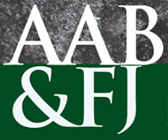Abstract
This work aims to study the default risk of family SMEs (small and medium enterprises) in Portugal, more specifically in the Leiria region. For this purpose, a panel data of 2,658 firms over the period 2012-2017 is analyzed. Using an ex-ante classification of defaulting, results suggest that there are more compliant firms and the number of defaulting firms have decreased over the period analyzed. Then, using a logit regression technique and six variables to predict default obtained through the stepwise methodology, results show that defaulting firms compared to compliant firms are usually younger, with higher difficulties in generating return and in being efficient, and more indebted. The Z’-score model was used as a robustness test, and results suggest that this model is inaccurate to the present reality and this specific sample. Therefore, new coefficients were estimated to increase the model’s efficiency. The proposed and the modified Z’-score models have an accuracy of 88.74% and 85.49%, respectively.
Keywords: Family Firms, Default risk, Logistic regression, Stepwise, Panel Data, SME
How to Cite:
Lisboa, I. M., Costa, M. & Santos, F., (2021) “Analysis of Family SMEs Default Risk: the Portuguese Case”, Australasian Accounting, Business and Finance Journal 15(4), 76-92. doi: https://doi.org/10.14453/aabfj.v15i4.5
Downloads:
Download PDF
449 Views
939 Downloads

